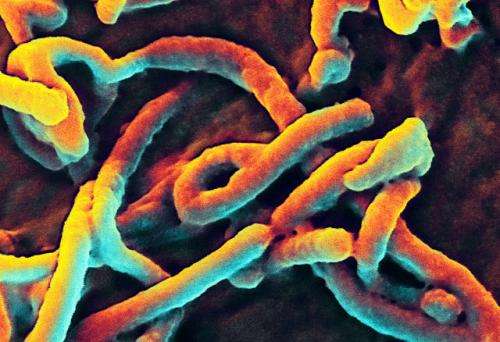Using Ebola survivors' blood as remedy may carry risks

Two American doctors sickened by Ebola have been given blood transfusions from survivors, a technique the World Health Organization advocates but that experts say carries some risks.
Ebola has killed more than 2,400 people, about half of those infected in the latest outbreak sweeping the West African nations of Sierra Leone, Liberia, Guinea and Nigeria.
There are no drugs on the market to cure or treat Ebola, no vaccines to prevent it. While trials are under way to accelerate therapies to people in need, medical experts have turned to the idea of using survivors' blood as a remedy.
The idea behind the approach is that someone who fought off Ebola is stocked with antibodies against the virus, and these protective antibodies can be transferred from one person to another.
The therapy was initially developed decades ago for the treatment of rabies, and can be delivered by the blood or blood products of humans or even animals.
"In the very old days horse serum was used a source of antibodies to treat certain infections," said Jeffrey Klausner, professor of medicine at the University of California, Los Angeles.
Doctors could either give a patient a blood transfusion, or use serum, a portion of the whole blood in which the cells and solid parts of the blood have been removed.
Christian missionary doctor Rick Sacra, 51, has received two blood plasma transfusions from Kent Brantly, 33, another US doctor who made a full recovery from Ebola last month, the Nebraska Medical Center said Thursday.
Brantly, who was also working in Liberia for a Christian aid group, was given an experimental drug, ZMapp, as well as blood from a Liberian boy who beat Ebola.
Sacra came down with Ebola while working as an obstetrician in Liberia.
His health is improving, but doctors are not sure if the reason is Brantly's donation, or a different experimental drug that Sacra took, or simply modern hospital care.
"We just administered everything we had access to, basically," said Phil Smith, director of the Nebraska Medical Center biocontainment unit.
That kind of kitchen-sink approach, while necessary in a crisis, makes scientific study of any individual therapy's effectiveness impossible.
Some studies have suggested there may not be many neutralizing antibodies in serum from humans who have survived Ebola, said Noel Tordo, senior virologist at France's Pasteur Institute.
"In rabies, most of the antibodies in a human or an animal would be neutralizing, they will neutralize the virus, but in Ebola it is still not sure. We don't know," he said.
"That doesn't mean that there are none, but there is not that much," he said.
Syphilis, HIV, hepatitis
The notion of using blood transfusions from survivors may seem like a quick and low-cost option for the West Africa outbreak.
Indeed, some 200 experts convened by the WHO earlier this month agreed that blood therapies and convalescent serums can be used to fight Ebola immediately.
But in practice, there are risks, according to Francois Bricaire, former head of infectious and tropical diseases at the Pitie Salpetriere Hospital in Paris.
"You have to make sure the serum is safe to use first, to avoid spreading HIV or hepatitis," he said.
"It's a common technology in developed countries, but difficult to put in practice in Africa," he added.
"In the midst of an epidemic, the major preoccupation is not to check everything."
Klausner agreed, saying that without adequate measures, doctors could be putting patients at risk of diseases such as AIDS and syphilis, or bad reactions to the transfusion.
"My concerns in any use of whole blood, serum or antibody therapy would be the safety of the product and the conditions of transfusion or injection," Klausner said.
"Depending on the setting whole blood therapy could be fraught will all sorts of concerns and complications like transfusion reactions, transmission of other blood borne pathogens and would have to be conducted under rigorous medical supervision to be safe."
© 2014 AFP















